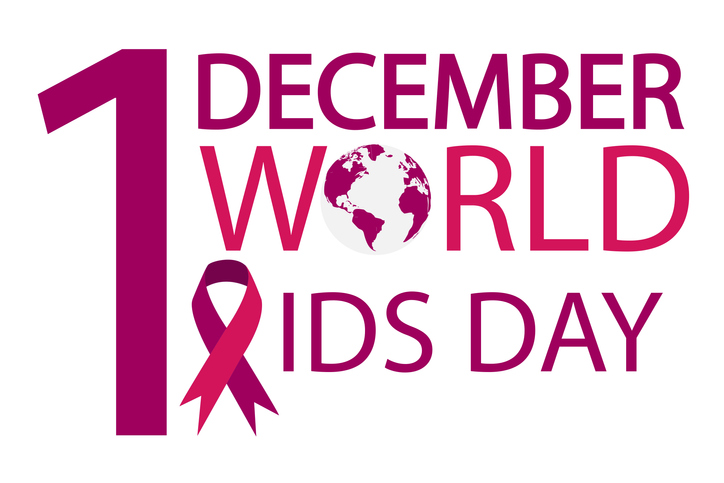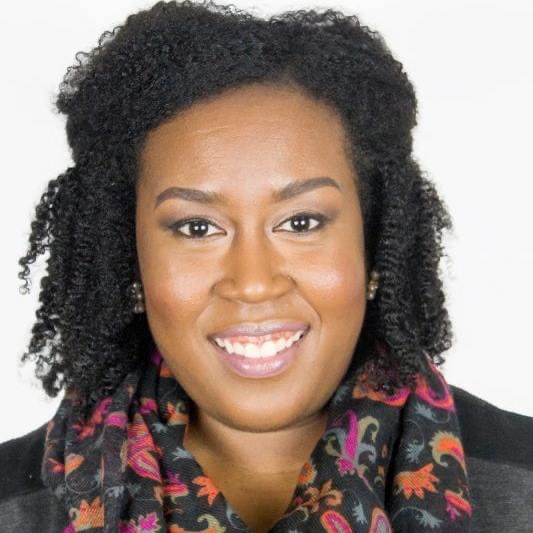
Source: South_agency / Getty
Kamaria Laffrey is similar to many Black millennial women. She was glued to the screen during the Fresh Prince Reunion. She likes playing with Snapchat dog filters. She enjoys a glass of red wine and she is living with HIV.
According to a report released by the Centers for Disease Control and Prevention last year, Black women accounted for six out of ten new cases of HIV in 2016 and HIV/AIDS-related illness is one of our leading causes of death. Diagnosed in 2003, Laffrey initially fed into the stigma that she was being handed a death sentence at 21. “I had just become a mom. So I was pretty much planning my funeral and then trying to figure out who was going to be my daughter’s godmother,” she told MadameNoire.
Now nearly 17 years later, Laffrey is working with UNITED WE RISE, a coalition effort devoted to the overall well-being of people living with HIV to fight stigma with facts. She has become a leader in the community and a sought after speaker and consultant. Her advocacy is inspired by her failure to find people who looked like her speaking about her experiences. She serves as an advocate by speaking up for marginalized people, fighting for criminal justice reform, and creating time for joy. Here she tells us about her work.
What makes you want to do this work?
“I don’t have a choice. Like I can’t be my authentic self [without people] knowing that I’m living with HIV. It’s something that’s a part of my life that I’m going to talk about openly, and to be around people that don’t know about it, or don’t know enough about it to protect themselves to make sex, positive choices with their lives, I just couldn’t live with that. So I started curating community and trying to educate and be around others that are doing the work that has so many levels to it, but I really didn’t have a choice and it’s something I could never walk away from.”
United We Rise focuses on every Black body. Why is it important to you that your work is intersectional?
“It is important because, I know people say this a lot, but representation matters. And for me personally, when I started looking for community, I couldn’t find Black people talking about HIV AIDS. All I could find were like angry white men that were still complaining about Reagan. And I was diagnosed in 2003 and that didn’t feel positive, feel affirming. It didn’t feel like leadership to me. And throughout the years, I recognized that this was not unique to me. And so I feel like there needs to be a shift in leadership and accountability that needs to be led and called in by Black people.”
“United We Rise came about in a really unique way because the organization I work with works in criminalization reform so being brought to the table with all these other leaders and advocates was really exciting. And when I started to hear that everything we were going to be doing was Black-led, It made me excited because when I think about HIV criminalization and how the laws that are written impact marginalized communities, usually women of color, and trans women of color, I recognize that now I get to center, you know, something that I work diligently in within the community that’s being impacted versus to sway people over to my side of the issue. I get to be in the center of the people that are being impacted. So I’m really proud to be a part of United We Rise.
United We Rise is a coalition.”
What does that shift look like for you?
“Well, one thing is, accountability, for us to be at decision-making tables, but to not be tokenized, to actually be a part of decisions that affect communities. And not just deciding on policies of whether or not they should or shouldn’t happen, but also on designing programs that are culturally specific to us that affirm our lives and who we are as a unique people because we’re not a monolith. One Black person can’t speak for all Black people.
How do you feel about the fact that HIV is often left out or not centered in the conversation around public health?
“It’s frustrating because public health often frames the responsibility of HIV on the person that already has HIV and less people like protecting themselves and being equipped and having access to the things to protect themselves, such as not just condoms, but like even PrEP to prevent from contracting HIV, if you have sex with someone else who’s HIV positive, So not having those conversations in an open and transparent way that’s community level, not so much high-level CDC language.
So much of the conversation about PrEP seems to center on men and not women. How do you think we bring women into the conversation and affirm them in protecting themselves and their sexual health?
“I feel like it’s happening. For one thing, I love talking with church groups, mostly women’s’ church groups. I love sitting and talking to them about having sex because it’s something that we do. And there’s a way to talk about it responsibly that doesn’t go against whatever doctrine is within that church that I’m sitting around and talking. I’m not talking about actually physically the church, but just having some real conversations with women about their bodies and what happens to them and what you can say no to and having consent. And there’s just a lot of different levels that go into that, that we need to be comfortable with, that HIV can filter into those different spaces, just being able to name like how we feel, how our bodies respond to different things and owning it.”

Source: Kamaria Laffrey / Kamaria Laffrey
What are some of your personal wellness practices and what are you teaching your daughter about wellness?
“I lost my husband in December and learning how to heal out loud is one of the things that I’ve been trying to show her. Growing up, if I witnessed my mother crying or being upset, it was usually because of something that physically happened to her versus me seeing her, trying to work through her own feelings. So one thing I put in practice is I have what I call a peace room. So I have incense. I have meditation books. I have mantras up on the wall. It’s just a space to go into and just check out and be with yourself. Sometimes I go in there and cry. The room is right next to my daughter’s room. Sometimes she goes in there. I don’t know what she does because she closes the door, but I allowed this space to be in the house for both of us to just go and no questions are asked, there’s no judgment but it’s just a way to disconnect from whatever is bothering you. And then just be still with yourself. That’s one thing that I have put into practice for our household.
How do you make room for joy in your household?
I love that question because I’m literally just learning how to do that on purpose. One thing I’ve always done by default, just because of who I am, I don’t go a day without laughing at something like I’m usually giggling at the Snapchat filter or my dog or my daughter, but planning my joy on purpose is more long-term. Being more spontaneous because I’m not normally. I’m very cautious, so planning like random trips and they’re usually like to the beach and back home, I don’t do stuff like that. If I’m traveling it’s because of work that has COVID has stopped that I was like, I still need to get out. I still need to have moments of joy. I need to experience life and not just the four walls of my house. So, I’m relearning how to do that and what that looks like for me as an individual.
If there was one main stigma about HIV you could address, what would it be?
That’s a loaded question. The fact that I don’t have an answer to me speaks volumes because I don’t think about it often because I’m so busy educating about stigma. I guess the one thing I would want people to know is it doesn’t have to be a secret, like the shame and the residue of the stigma from the beginning of the epidemic doesn’t have to exist today. There’s light on the other side of the diagnosis, there’s life beyond a diagnosis and it doesn’t have to be the end. There’s community, there’s resources, there’s information out there to help people and nobody has to disclose and become this automatic advocate. You can still find community without ever having to be public about your status. A lot of people fear that if they tap into community, that all of a sudden they have to be visible and that’s not the case. …there is an in-between.









